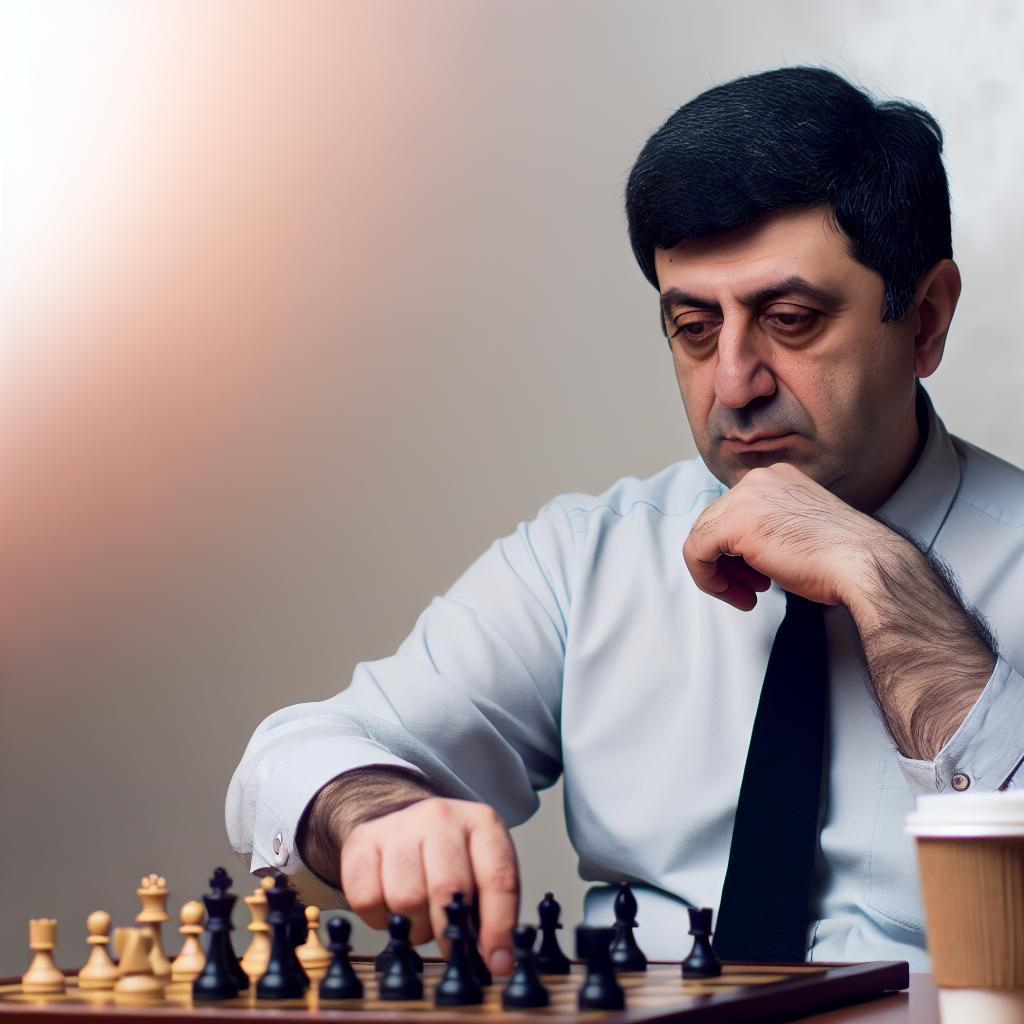Contents
Early Life and Background
Tigran Petrosian was born on June 17, 1929, in Tbilisi, Georgia. At the time, Tbilisi was part of the Soviet Union, a region characterized by its diverse cultural milieu. Petrosian’s life was shaped by the intricate tapestry of his Armenian heritage, a thread that ran through his personal and professional experiences. From a young age, Petrosian exhibited an inclination toward strategic thinking, a trait that became apparent as he turned his attention towards chess. The challenges of his early life were numerous; his parents passed away during World War II, a loss that would have a profound impact on him. However, it was Petrosian’s resilience and determination that ultimately led him to conquer the chess world, overcoming each obstacle with unwavering resolve.
Chess Career Beginnings
Petrosian’s formal journey into the world of chess began in the late 1940s. During this period, the post-war Soviet Union was promoting chess as a symbol of intellectual supremacy, and young players were encouraged to compete in national tournaments. It was in this environment that Petrosian first gained recognition on the chess scene. His meticulous style of play, distinguished by defensive maneuvers and a focus on securing long-term positional advantages, quickly set him apart from his contemporaries.
In 1951, Petrosian achieved the coveted title of International Master, marking a significant milestone in his burgeoning career. This achievement was not merely a title but a testament to his ability to balance meticulous defense with the necessary aggression to capitalize on opponents’ mistakes. As he continued to develop his skills, Petrosian honed a playing style that would become his hallmark—strategic, calculated, and methodical.
World Chess Champion
In 1963, Tigran Petrosian reached the zenith of his career by becoming the 9th World Chess Champion. His victory against Mikhail Botvinnik was not only a personal triumph but also a significant event in chess history. Petrosian’s reign as World Champion, which lasted until 1969, was characterized by his renowned defensive style. His ability to neutralize aggressive opponents was particularly noteworthy, allowing him to emerge victorious in many intense matches.
Even after losing the World Champion title to Boris Spassky in 1969, Petrosian continued to be a formidable and respected figure in global chess circles. His participation in top-level tournaments and matches illustrated his enduring passion for the game and highlighted his commitment to maintaining high standards of play. The keen understanding and strategic innovations he brought to the game ensured his legacy in the chess community long after his reign had ended.
Playing Style
Nicknamed “Iron Tigran,” Petrosian’s playing style was distinctive and deeply influential. His approach to chess was rooted in a strong defensive game, characterized by methodical and strategic maneuvers that disrupted opponents’ plans. Key to this approach was his adept management of pawn structures and an exceptional ability to position pieces to create lasting advantages.
Petrosian’s conservative play was at times criticized by those who sought more aggressive, attacking styles. However, his peers recognized and respected his extraordinary capacity to identify and exploit even the slightest vulnerabilities in opponents’ setups. His methodical dismantling of aggressive strategies established him as one of the most formidable defensive players in chess history.
Legacy and Influence
Tigran Petrosian’s influence continued unabated even after he stepped back from competitive play. He made substantial contributions to the chess world through written works and detailed game analyses, enhancing the understanding of defensive play and strategic planning. These insights have provided a rich resource for players at all levels seeking to refine their own games with the wisdom of one of chess’s greatest minds.
Beyond his written contributions, Petrosian played a critical role as a mentor to younger players, sharing his strategic insights and competitive experiences with the next generation of champions. His dedication to fostering new talent was an extension of his own legacy, ensuring his influence would endure within the chess community.
Petrosian’s innovative strategies and defensive techniques remain subjects of study and admiration today. His life’s work demonstrates a profound understanding of chess as an intellectual pursuit, and his achievements continue to inspire chess enthusiasts around the world.
For further exploration of Tigran Petrosian’s remarkable life and his extensive contributions to chess, you may wish to seek out comprehensive biographies and academic studies that delve deeper into the intricacies of his career and personal journey. Interested individuals can find a wealth of information and resources online that detail the impactful legacy of this chess legend.

